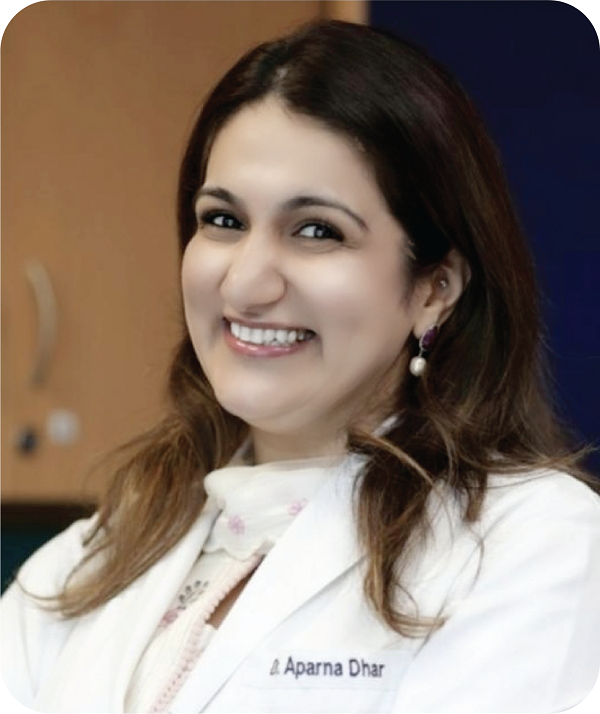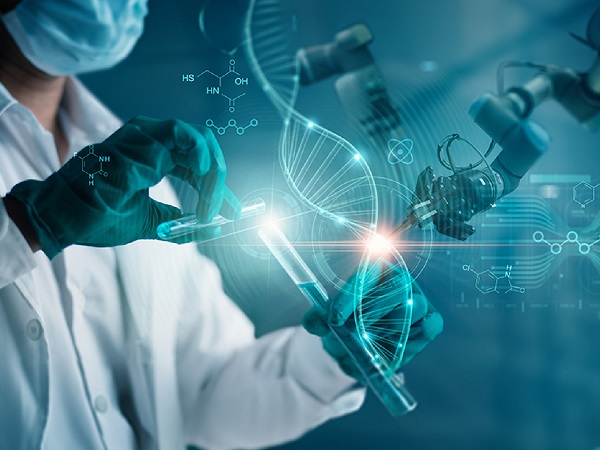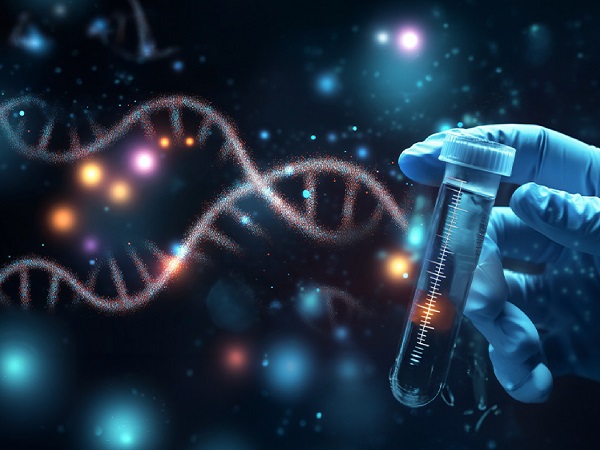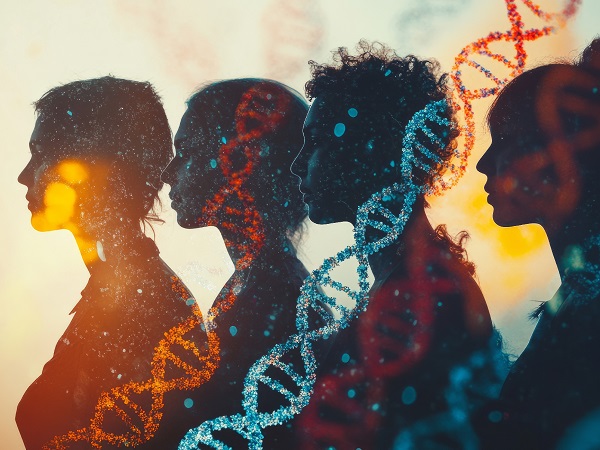
Dr. Aparna Dhar
Cancer Genetics and Molecular Oncology specialist
Dr. Aparna Dhar is a Cancer Genetics and Molecular Oncology specialist with over 18 years of experience. She trained at the Mayo Clinic and University of Glasgow and has contributed to groundbreaking work across NHS Scotland, Broad Institute (MIT & Harvard), and Harvard Medical Foundation. She currently leads oncology and genetic counseling programs at Fortis and Max Hospitals across India.
Vision
My vision is to create a space where science meets sensitivity-where cutting-edge genomic medicine is delivered with deep compassion, clarity, and respect for each patient's journey. I believe that true healing begins with being heard, understood, and treated as a whole person - not just a clinical case or molecular profile.
Services

Family Risk Management
Could cancer run in your family? When a family member is diagnosed with cancer - especially at a younger age or with multiple tumors - it can raise alarming questions:

Hereditary Cancer Risk Assessment
Cancer can happen for many reasons. Sometimes, it's caused b things in the environmental or lifestyles choices like smoking or exposure to certain chemicals.

Genetic Counselling
Genetic counselling is a health service that provides individuals and families with information and support about genetic conditions.

Precision Oncology
Precision oncology, also known as personalized cancer therapy, represents a revolutionary approach in cancer care that customizes

Molecular Diagnostics
In today's world of cancer care, understanding why a disease happens is just as important as how to treat it.

What is Genetic Testing?
Genetic testing is a laboratory test that examines your DNA, the genetic blueprint that makes you who you are.

Who Should Get Genetic Testing?
Genetic testing is not just for those who already have cancer - it can also benefit people who are healthy
Testimonials
What they are saying about us
About Genetic Testing (FAQs)
-
What makes precision oncology different from traditional cancer
treatments?
Unlike traditional treatments that target cancer based on location (e.g., breast or lung), precision oncology customizes therapies based on your tumor's genetic makeup for better effectiveness and fewer side effects.
-
If I have a hereditary cancer mutation, does
that
mean my children will inherit it?
Not necessarily. Each child has a 50% chance of inheriting a mutation from an affected parent, but genetic counseling can provide personalized insights.
-
Are hereditary and precision cancer tests the
same?
No. Hereditary cancer tests check for inherited mutations (e.g., BRCA1/2), while precision oncology tests analyze mutations within a tumor to guide treatment.
-
Is precision oncology only for rare cancers?
No, it's used for many common cancers, including breast, lung, colon, and prostate cancer. The goal is to find the best treatment based on genetic insights.
-
Does precision medicine replace chemotherapy
and
radiation?
Not always, but it often reduces the need for broad treatments by targeting cancer cells more precisely, leading to fewer side effects and better results.
Myths and Facts (FAQs):
-
If no one in my family had cancer, I won't get it.
Myth: Only inherited genes cause cancer.
Fact: Most cancers are not inherited; they result from lifestyle, environment, and random mutations. However, genetic factors can increase risk.
-
If I have a cancer-related gene mutation, I will
definitely get cancer.
Myth: A mutation guarantees cancer.
Fact: Having a mutation (like BRCA1/2) increases risk, but it does not mean you will definitely develop cancer. Preventive measures can help lower risk.
-
Genetic testing is only for people who already
have cancer.
Myth: Testing is only for patients.
Fact: Genetic testing helps identify cancer risks early, allowing preventive strategies even before cancer develops.
-
Precision medicine is only for rare cancers.
Myth: It's limited to uncommon cases.
Fact: Precision medicine is being used in various cancers, including breast, lung, and colorectal cancer, to personalize treatments.
-
If my genetic test is negative, I'm 100% safe
from cancer.
Myth: A negative test means zero risk.
Fact: Cancer can still develop from non-genetic factors like smoking, diet, and environmental exposure.
-
Precision cancer treatments work for everyone.
Myth: Targeted therapies are universal cures.
Fact: Precision treatments work best for patients with specific genetic profiles. Not all cancers respond the same way.
Consent and Data Privacy (FAQs):
-
Why is consent important in hereditary and precision cancer
testing?
Consent ensures that you fully understand the purpose, benefits, and risks of genetic and precision cancer testing before proceeding. It also guarantees that your participation is voluntary and that you can withdraw at any time.
-
Can my family members access my genetic test
results?
Your results remain confidential. However, because hereditary cancer involves family risks, genetic counselors may discuss the benefits of sharing relevant findings with close relatives.
-
What happens if I change my mind after giving
consent?
You can withdraw your consent at any stage. Your data will no longer be used for research or future testing, except where required by law for prior commitments.
-
How is my data used in precision cancer
treatment?
Your genetic profile helps doctors personalize treatments based on your tumor’s characteristics, improving effectiveness and reducing unnecessary side effects.
-
What measures ensure patient trust in
precision
oncology?
Transparency, data security, and clear communication about risks, benefits, and options help build patient confidence in precision cancer treatments. Genetic counseling also provides guidance tailored to your concerns.

